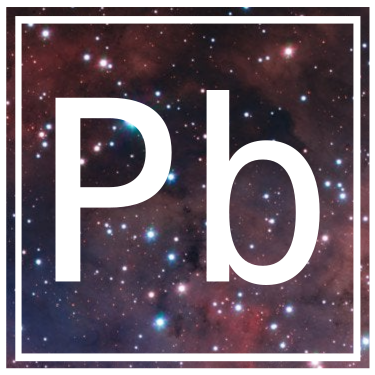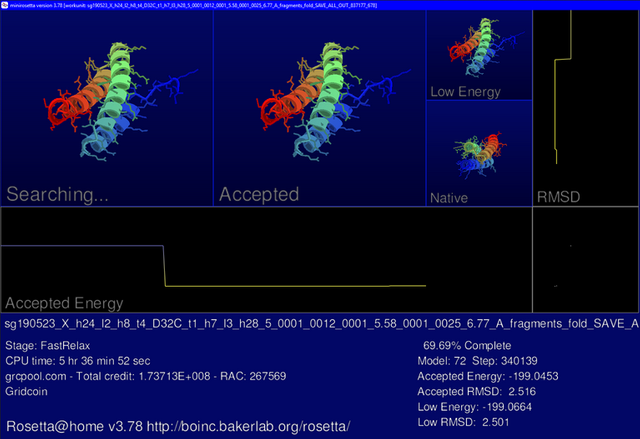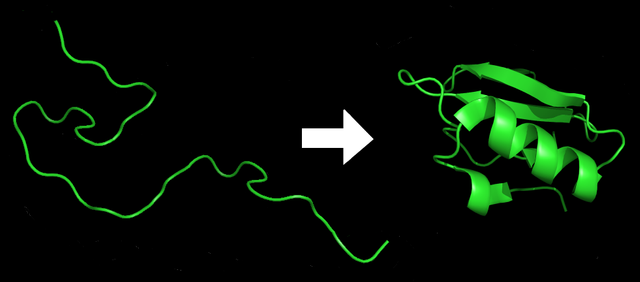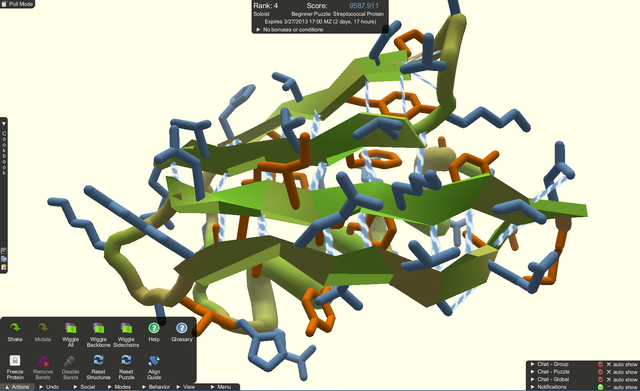Project brief - Rosetta@home explained

Project brief (Pb) is a segment of the Gridcoin Fireside where I will be talking about scientific projects apart of the BOINC network.
Now this isn't an explanation of how HIV's gp120 protein interacts with the CD4 and CCR5 cell membrane proteins to enter the inside of a host, it's a simple and super fun experience in learning about what's out there and what you could be supporting with just the click of a button!
Join me live with Jringo on the Gridcoin Fireside at July 18th 8:00pm EDT! (Check your timezone)
Who am I?
I'm Delta! An Australian programmer, technologist, blockchain and cryptocurrency expert, and self-proclaimed physicist.
I like to communicate things to people in the simplest way possible and teach people about the most interesting things that this universe has to offer.
You can find me on Discord where I hang out in the Gridcoin chat.
What's happening this Fireside?
On July 18th I will be opening the Fireside with a short explanation of the BOINC project Rosetta@home.
We all know that cancer and viruses are some of the most difficult things the human race has had trouble curing. The problem is that cancer and viruses keep changing, developing, mutating and developing resistance to whatever we try and throw at it. The key to keeping up with this is to develop specialised cures that target the disease at a protein level. This is what Rosetta does, creates proteins to try and cure these diseases.
What is Rosetta@home?

Rosetta@home is crazy about proteins!
What this project does is simulate what's called protein "folding", which produces millions upon millions of protein combinations that try to achieve a particular goal. This goal could be a number of things, curing cancer, killing viruses and even making biofuel!

So what is a protein? Well we're not talking about the stuff you need to eat to get muscles.
Put simply it's just an long strand of (non-harmful) chemicals called amino acids all tangled in a shape that allows them to do something. Proteins are everywhere, they digest food in your gut, they carry oxygen around your body and help us fight infection. And not just in humans, plants, viruses and even your pet dog or cat has proteins.

Folding is the process where you take the strand that makes up the protein and model it into a different shape. This shape is very important because it defines what the protein does and whether it will fall apart later on.
Rosetta@home tries to find what's called the "lowest energy" proteins, because these are the ones most stable and least likely to break apart.
Fun fact, Gridcoin has found over 2% of all low energy proteins found by crunchers running Rosetta@home. That might not seem like much but it is more that any other team or user!
Interested in trying to cure disease?
Don't have a good computer or want to donate your spare time?
Join Zooniverse, a site for volunteer science!
Solve puzzles and complete tasks that help real scientists solve real problems!

Also check out fold.it, a project in partnership with Rosetta that gets humans to do the work. With this interactive puzzle game, you get to make proteins that might actually go into a scientific research paper!